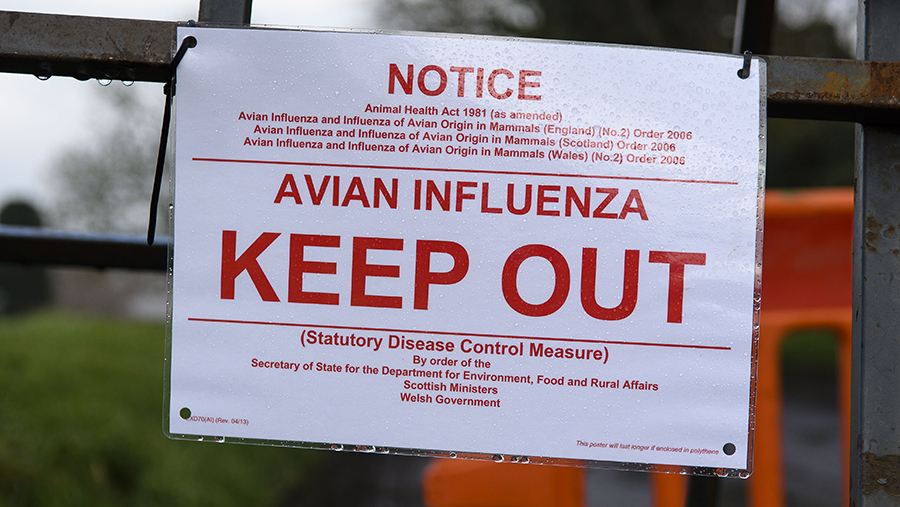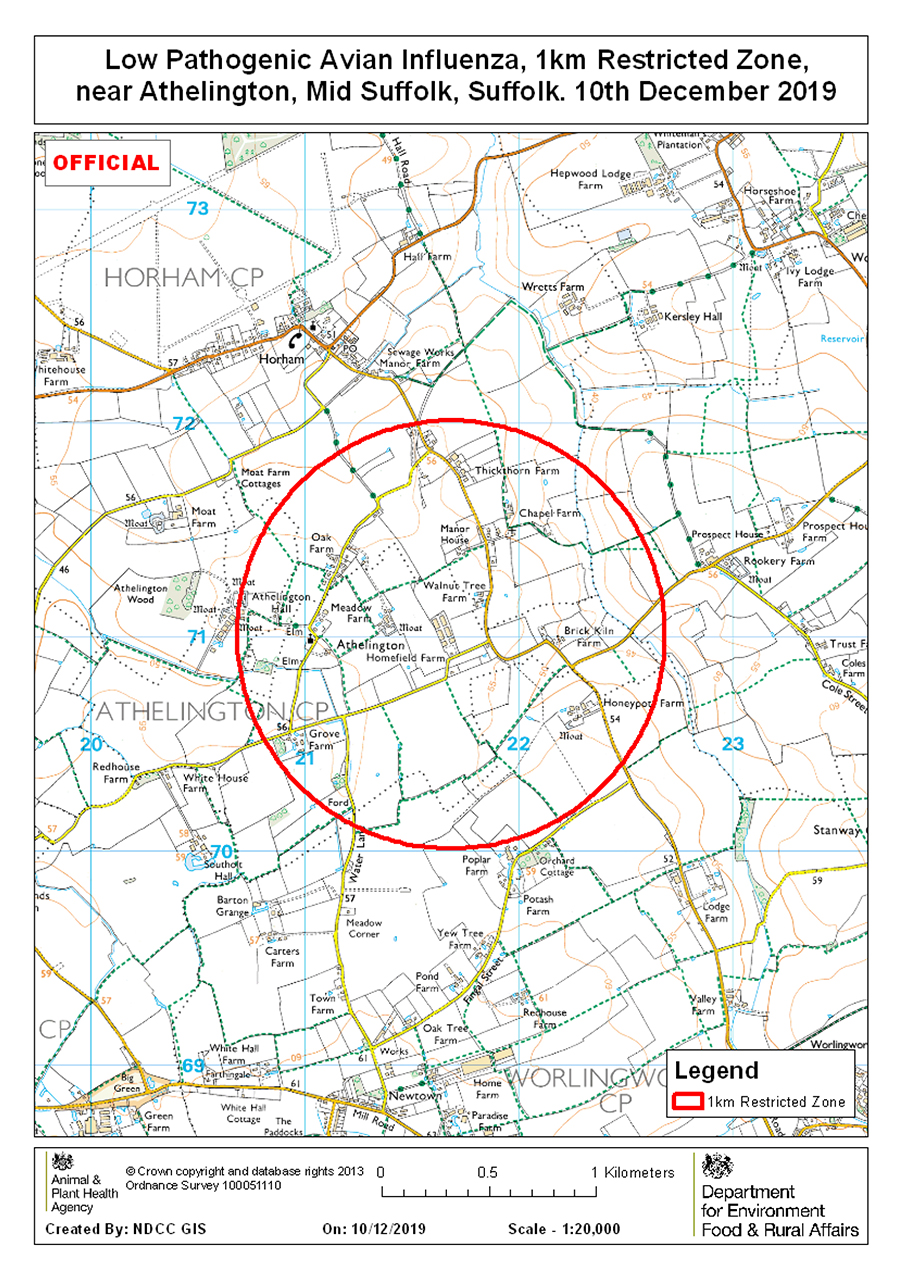Low pathogenic bird flu hits broiler breeder unit in Suffolk
 © Mark Bullimore/Shutterstock
© Mark Bullimore/Shutterstock
Commercial poultry keepers and farmers with small flocks of chickens have been urged to step up their watchfulness and biosecurity following an outbreak of low pathogenic avian influenza in Suffolk.
Defra confirmed the outbreak of the H5 strain on Tuesday evening (10 December) and immediately implemented a 1km restriction zone around the premises near Athelington, in the north of the county.
A detailed investigation is under way to try to identify the source of the outbreak, and the 27,000 birds – believed to be on a broiler breeder unit supplying fertile eggs for a hatchery – will be culled as quickly as possible.
See also: Avian influenza: The signs and symptoms
Key signs to look out for
- Swollen head
- Discolouration of neck and throat
- Loss of appetite
- Respiratory distress
- Diarrhoea
- Fewer eggs laid
If bird flu is suspected, keepers must report it immediately by calling the Defra Rural Services Helpline on 03000 200 301. In Wales, contact 0300 303 8268. In Scotland, contact the local Field Services Office. In Northern Ireland, contact Daera on 0300 200 7840.
Defra chief vet Christine Middlemiss said that her ground staff were urgently looking for any evidence of disease spread in order to control and eliminate it, emphasising that the risk to human health was minimal.
“Bird keepers should remain alert for any signs of disease, report suspected disease immediately and ensure they are maintaining good biosecurity on their premises,” she said.
Restrictions
The 1km restriction zone means the movement of birds, eggs and items such as carcasses and manure on or off any premises where poultry is present, and out of the zone, is banned except under licence.
No gatherings of poultry or release of game birds are allowed in the zone.
This is the first case of avian influenza in the UK since June 2017, when highly pathogenic H5N8 was found in a flock of 35 birds near Diss in Norfolk.
The last case in a commercial flock was in February 2017. In those cases, a 3km protection zone and a 10km surveillance zone were put in place, as the strain of disease was highly pathogenic.
It is believed there are no other commercial poultry units within the 1km restriction zone, but just backyard flocks.
The UK has been officially avian influenza-free since September 2017.
Biosecurity advice
Minimise movement in and out of bird enclosures
Disinfect footwear before and after visiting birds
Clean and disinfect vehicles and equipment that have come into contact with poultry
Keep areas where birds live clean and tidy
Regularly disinfect hard surfaces such as paths and walkways
Humanely control rats and mice
Place birds’ food and water in fully enclosed areas protected from wild birds
Remove any spilled feed regularly
Avoid keeping ducks and geese with other poultry species
Keep birds separate from wildlife and wild waterfowl, using suitable fencing
Keep a close watch on birds for any signs of disease

